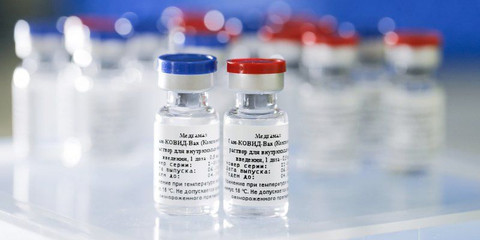[ad_1]

Russia has reassured the EU that its anti-coronavirus vaccines have not caused a single death, following EUobserver’s report on potential side-effects.
“We are constantly monitoring the safety of vaccines against coronavirus,” Alla Samoilova, the head of Russia’s healthcare surveillance agency, Roszdravnadzor, told this website in a statement last weekend.
“Since the beginning of use, we have not recorded a single case of death resulting from the use of Russian vaccines against coronavirus, and the frequency of adverse reactions does not exceed the rate of 0.1 percent,” she said.
Roszdravnadzor spoke out, in an unusual move for the Russian institution, following EUobserver’s revelation, on Friday (9 April), that four people died and six others felt unwell after taking Russia’s Sputnik V vaccine in recent months.
None of the 10 case files from RosPotrebNadzor, a Russian agency responsible for administering vaccines, said there was a casual link between Sputnik V and the ensuing health complications.
“We carefully investigate each case of a possible severe adverse reaction in persons vaccinated against Covid-19. In a number of cases, which were reported by the media, there was a coronavirus infection in the period that preceded the formation of stable immunity to coronavirus,” Samoilova noted.
The World Health Organisation had audited Russia’s immunisation safety monitoring in 2006, she added.
A Russian federal agency collected “information about all citizens who have been vaccinated, data on their body reactions, including delayed ones,” Samoilova said.
More than 1.5 million Russians also kept “online observation diaries, in which they report how they feel after vaccination”, she noted.
And “every healthcare professional is obliged to update information about all cases of adverse reactions to a vaccine”, she added.
Russia’s statement – that there was just a 0.1 percent adverse reaction rate – comes after it gave out 5.9m vaccination doses by 22 March, according to government figures seen by EUobserver.
The rate of jabs given compared to regional population figures was the highest in Moscow, but was quite low in the North Caucasus republics, even though the outlying region had a much higher Covid-19 mortality rate last year.
Some 17,000 jabs were also given out in Russia-occupied Crimea in Ukraine.
And figures indicated Russia planned to produce just 57.3m doses of vaccines in facilities inside Russia “for civic use” by the first half of this year – far short of what it needed for two jabs per person, even though it was rushing to also make Sputnik V for export to Europe and beyond as a form of foreign-policy soft power.
Russia’s reassurances also came as experts from the EU regulator, the European Medicines Agency (EMA) in Amsterdam, prepared to travel to Russia this week to carry out inspections of production sites and clinics prior to granting approval.
The EMA, last week, confirmed it had seen the Russian data on the 10 cases of medical complications unearthed by this website.
But these were sent to the EMA by a Russian whistleblower, instead of via normal channels.
And the lack of transparency came amid Russia’s track record of disinformation on the pandemic, as well as more broadly speaking, for instance, in its recent campaign against revelations of sports doping or of its poisoning of Kremlin critic Alexei Navalny.
Slovakia fiasco
Meanwhile, in a separate affair, Russia recently delivered a batch of Sputnik V to Slovakia which did not conform to the same standards as those previously reviewed by scientists, Bratislava said.
But Russia asked Slovakia to return the shipment, accused it of spreading “fake news”, and said this would not harm EU confidence in its drug.
“If Slovakia doesn’t need the vaccine, other countries will be pleased … there will be more for others,” Kremlin spokesman Dmitry Peskov said on Friday.
Austria has also completed talks on purchasing Russia’s drug while awaiting EMA approval, its chancellor said Saturday.
“There are problems with supplies of other vaccines and we are ready to help Austria. But dirty games are being played around this topic. Interests of giant pharmaceutical concerns are involved. Millions and billions are at stake,” Russia’s ambassador in Vienna, Dmitry Lyubinsky, said on Friday, referring to anti-Sputnik V lobbying.
[ad_2]
Source link